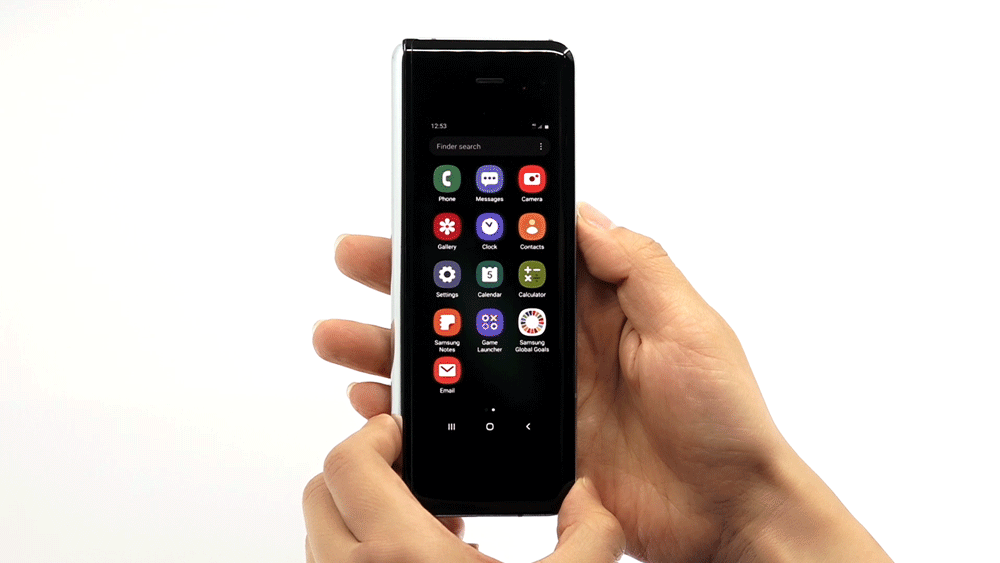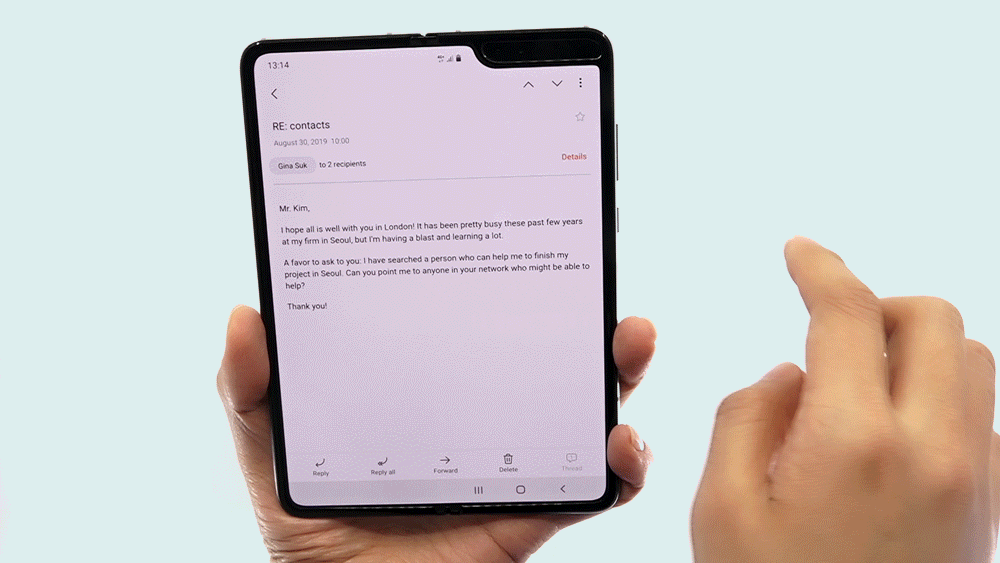Only two smartphone giants have come close to releasing a commercial foldable smartphone this year. But both the companies have encountered issues in the development and release process, leading to several delays. Most of you know which two companies I am talking about but for those who don’t, they are Samsung and Huawei. They are the top two smartphone makers in the world today, with years of experience making high-end products. But both of them struggled to release their first commercial versions of the foldable. This goes on to show how challenging it is to make a foldable smartphone.
Despite months of delay, the first foldable smartphone from Samsung is finally up for sale this month and the company has just revealed a few more details on the software side of things. Samsung revealed today that it collaborated with Google as well as the developer community to optimize hundreds of frequently used Android apps for the Galaxy Fold. These apps include Amazon Prime Video, YouTube, Facebook, and even Microsoft Office.
⇒ Editor’s Pick: Huawei Mate X 5G rumored pricing in China isn’t cheap!

The unique design of the Galaxy Fold necessitates app optimization. For example, the Galaxy Fold comes with features such as app continuity (app automatically expands onto the large screen when you open up the foldable) and multi-active window (open up to three apps side by side on the main screen). Since the app sizes and aspect ratios differ significantly when switching from the cover display to the main display, app optimizations ensure that they work flawlessly during the process.

But given the sheer number of Android apps available on the Play store, neither Samsung or Google can optimize all of them. For this, the Galaxy Fold features a special built-in app-optimization technology that automatically converts the app’s size and ratio to fit the display, with a tap of a button.
Samsung has even set up test labs for optimizing Android apps in Korea, the US, as well as China. For those who can’t physically access these labs, the company in collaboration with Google set up a ‘remote test lab’ which could be used by developers to optimize their apps using an emulator.
Foldables mark a significant milestone for the smartphone industry and software will play an even greater role in taking full advantage of its new-age design. The phone is already on sale in South Korea and will launch internationally in the coming days.






